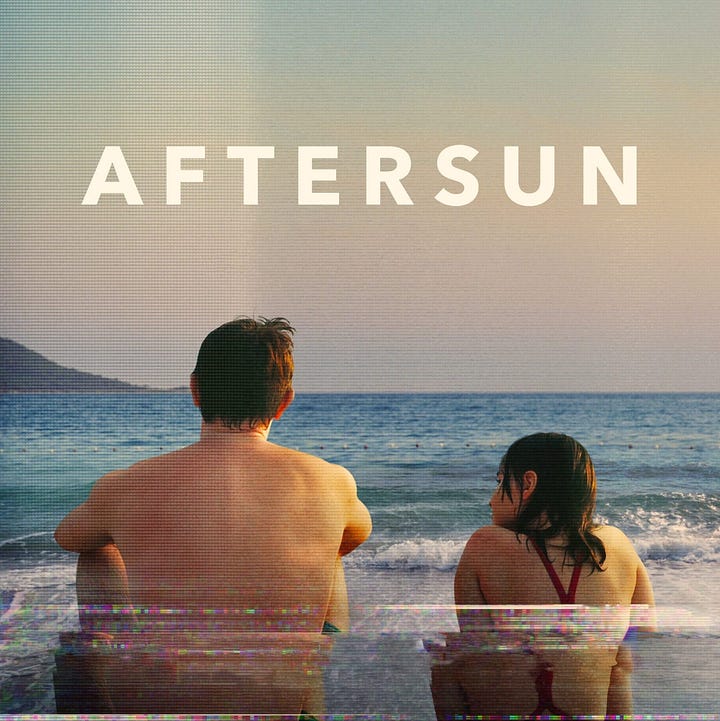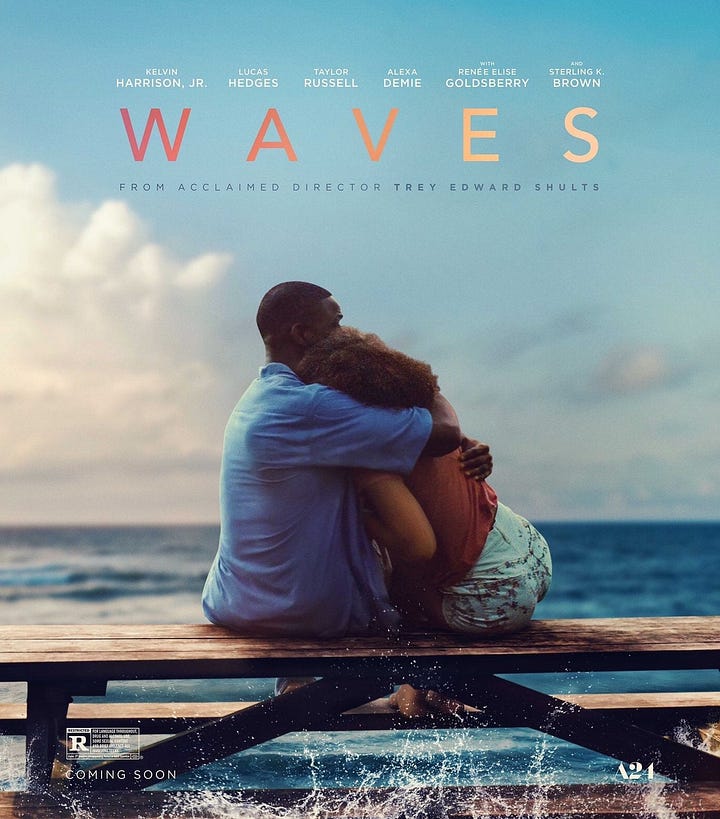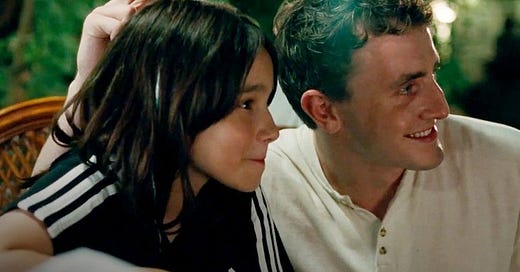'Aftersun': Fathers be good to your daughters
Pack your youth-XL tees and Tamagotchi, kid, we're going on mid-90s holiday
I will never front on this Substack for clout, you guys know that, so I’m forced to tell you — much like ‘Tár’, I probably wouldn’t have seen ‘Aftersun’ without the benefit of LA’s free screening ecosystem. Sure, like a dutiful son of A24, I’d read about this one, seen the trailer, but I don’t know — it seemed like some forced attempt to Make Paul Mescal (‘Normal People’) Happen, with a huge dollop of ‘Waves’-esque saturated-synthy sadness to taste.


Presumably skippable! But 96 efficient minutes later I thought, “well, that was sort of lovely. A trifle of a ‘story’, sure, but lovely.” A week later I thought, “you know, maybe that shit was deeper, in its own meandering way, than I gave it credit for.” A month later I thought, “no joke this is one of the best movies of 2022. The people need to hear it.” And so here we are.
Literally all you need to know about ‘Aftersun’ is that it’s about a possibly alcoholic, Depressed Divorced Dad (D^3) and his 11-year-old daughter on holiday1 in Turkey; him trying to better connect with her, her tip-toeing into womanhood, and much of it caught on MiniDV film.
Oh right, it’s sort of a period piece! Not that it matters to anyone outside the Millennial orbit, but this is a MID-90s MOVIE (not to be confused with the movie ‘Mid90s’) that takes full, painful advantage of the era. We’re talkin’ long jean shorts. We’re talkin’ tweens getting their hair beaded on the beach. We’re talkin’ Chumbawumba.
(Which, if you’re a true student of history, you know places ‘Aftersun’ at minimum in the year 19972.) Much of this could be considered a gloss, no different than ‘Stranger Things’ baiting you with 80s references until you want to track down and burn every last copy of ‘The NeverEnding Story’ ever printed. But the digital camcorder footage — which is inter-spliced throughout the movie, and even acts as a sort of framing device — carries thematic and emotional weight. What’s it like to (literally) look back on your childhood as you yourself expect a child? How do we reconcile our memory of an event with the truth of it, as captured on film?
It almost doesn’t matter if you can’t track ‘Aftersun’’s “timelines,” if you can even call them that, and what bearing they have on the holiday at its center. This is a ~VIBES~ movie, baby, almost Guadagnino-ish in its impressionistic use of POV, minimal plotting, and endless shots of the Mediterranean. Writer-director Charlotte Wells just wants us to soak in a feeling.
Which is not to say that feeling doesn’t go anywhere. If anything, the languid holiday pacing is deceptive — putting us off the trail of a devastating climax ‘Aftersun’ has been building to the whole time. To spoil it would be deeply un-chill! So instead I’m going to talk around it by spoiling the end of Claire Denis’ 1999 film ‘Beau Travail’.
🚨 SPOILERS FOR THE 1999 FRENCH INDIE DARLING ‘BEAU TRAVAIL’! 🚨
It’s possible you didn’t earn a Film Studies degree from an accredited institution in the mid-aughts and might be out of the loop on, say, movies of the slightly earlier late-90s that were used as teaching tools. In which case: ‘Beau Travail’ is a retelling of Herman Melville’s ‘Billy Budd’, set against the backdrop of the French Foreign Legion. A commander (Denis Lavant) becomes obsessed with a young seaman (😝), struggling to reconcile his clear sexual desires with his station and, you know, the dictates of toxic heterosexuality. He kills himself in the end, which leads to this absolutely breathtaking credits sequence:
After a life marked by repression and self-hatred… dude’s free. He lives on in this metaphysical dance studio, finally moving — in every conceivable sense — the way he wants. It’s a riveting example of one of my favorite movie tropes, which is people breaking into dance at the end to express everything they weren’t able to for the previous 90 minutes. ‘Another Round’ does it. You could argue ‘The 40-Year-Old Virgin’ does it. I’ll say nothing more about ‘Aftersun’ except to say it trades on, if not the same sexual unburdening, the possibilities of dancing in unreality.
🚨 ‘BEAU TRAVAIL’ SPOILERS OVER! 🚨
For the absolute teensiest of movies, there’s so much more to discuss — from its (mercifully) understated depiction of mental health issues to the specifics of all-inclusive Turkish resorts — but I’ll leave it to my favorite critic David Ehrlich, who zeroes in especially on the subject of memory in his IndieWire review. How much of our memories is real? How much is fabricated, by us, almost as a form of protection? Does the distinction even matter?
Go see the movie! I’ll be waiting here with a MiniDV camcorder to record your reaction when you get back.
At Lifting Fog, we honour local terminology
Sophie also wears a “No Fear” cap, maybe the most brutal time period signifier this Millennial reviewer has ever seen




Can you do armageddon time and wakanda forever in the same review - compare and contrast is easier than just normal commentary
I liked this movie a lot. The pieces are all there, but it isn't until the movie ends that you put together the full picture being presented. This movie stays with you well after you've left the theater.